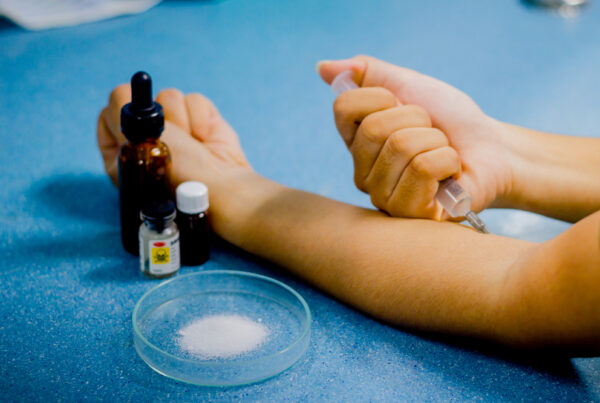When an individual has habitually abused drugs and/ or alcohol, his or her body becomes more accustomed to functioning with the substance present than without. When the body lacks the previously abused substance, it will react accordingly by way of developing withdrawal symptoms. The combination, severity and duration of withdrawal symptoms experienced will depend on a variety of factors. These can include, one’s personal health history, the type of substance abused, the potency of the substance, the frequency of abuse, the length of time the individual abused the substance, if he or she simultaneously abused other substances, and the presence of any co-morbid disorders will all factor into one’s detox experience and associated withdrawal symptoms.
Detox
Detox is the process that rids one’s body of all foreign substances. It is an essential step in one’s recovery from addiction, as an individual must cleanse his or her body from all abused substances so as to enable it to begin to learn how to function optimally in its absence. There are a variety of detox methods available, each with varying levels of support. Depending on an individual’s situation he or she may opt to undergo detox at home with minimal or no outside support. Other options include a supervised detox (offering twenty-four-hour support for the duration of the detox process), medically supervised detox (offering twenty-four-hour medical support including the ability to provide onsite medical intervention should it be needed during one’s detox process), and medically assisted detox (medication-assisted and medically supervised detox).
Withdrawal Symptoms and PAWS
There are a plethora of different types of withdrawal symptoms an individual may develop when abruptly stopping drug and/ or alcohol. Though they will vary from person to person, some examples of widespread withdrawal symptoms include the following, as provided by the Mayo Clinic:
- Body aches
- Sweating and/ or chills
- Digestion problems (e.g. nausea, vomiting, diarrhea, stomach cramping, etc.)
- Loss of appetite
- Sleep disturbances (e.g. sleeping too much, insomnia, fatigue, etc.)
- Rapid heart rate
- Irritability
- Mood swings
- Depression
- Mental fogginess
- Poor concentration
Typical withdrawal symptoms generally subside in one to two weeks after an individual’s last dose. However, in some situations an individual may develop post-acute withdrawal syndrome (PAWS). This condition is characterized by an individual experiencing prolonged, lingering withdrawal symptoms lasting far longer than the standard one to two week timeframe. The withdrawal symptoms that present in PAWS are often primarily comprised of psychological and mood-related symptom (e.g. depression, anxiety, mood swings, hostility, irritability, agitation, etc.). The withdrawal symptoms associated with PAWS are often transient, and can come and go unexpectedly (occurring cyclically for a year with episodes lasting a few days). Though PAWS can occur with any abused substance, it most commonly affects individuals discontinuing substances such as alcohol, antipsychotics, antidepressants, marijuana, benzodiazepines, stimulants, and opioids.
For Information and Support
If you are concerned for yourself or a loved one in regards to substance abuse and/ or addiction we recommend reaching out for help as soon as possible. If left untreated, substance abuse can result in long lasting and potentially life-threatening consequences. Keep in mind: you are not alone! There is an entire network of professionals that are available to help and support you and your loved one throughout the recovery process. The earlier you seek support, the sooner your loved one can return to a happy, healthy, and fulfilling life.
Please do not hesitate to reach out with any questions regarding our specific program at Haven House Addiction Treatment and/ or general substance abuse and/ or addiction treatment related information. Our highly trained staff is readily available to discuss how we might best be able to help you and your loved one. We can be reached by phone at 424-258-6792. You are also welcome to contact anytime us via email at admissions@hhtxc.com.


